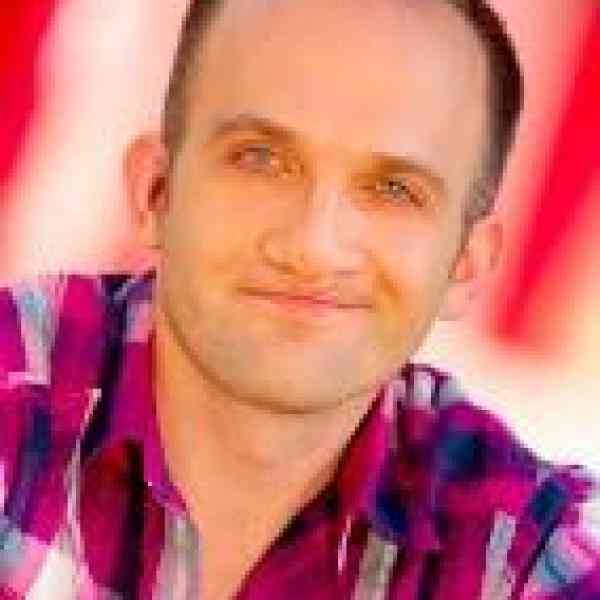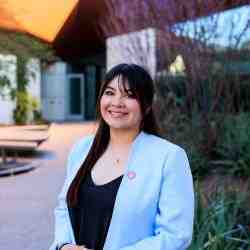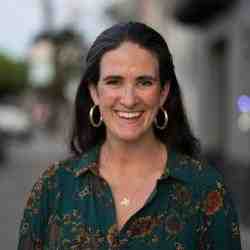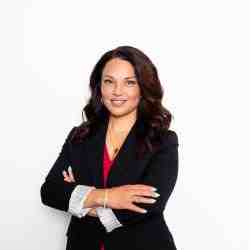FRUIT OF CARE Nonprofit Kft
https://www.fruitofcare.huIntroduction
Aron Jakab is building a more competitive and independent citizen sector in Hungary, beginning with professionalizing the state employment system for disabled workers. Fruit of Care creates the missing link between the citizen sector and the full market.
The New Idea
Fruit of Care (FOC) was founded to address a growing crisis in Central and Eastern Europe: dependency of the severely disabled on state employment centers, reliance of state employment centers on government funding to function, and a stigma of work centers and the disabled clients they employ. Through FOC, Aron is building a previously non-existent relationship between the state work centers and full market access. Through his new system of transactions that exposes the work centers to the market forces in a cooperative way, Aron is changing the perception of the disabled. He is bringing attention to their similarities, not differences.
Aron begins with focusing on improving work center operations. Through this process of professionalizing the work centers and discovering new markets for the products the disabled create, he is enabling a perception shift of the disabled within and beyond the work center walls: the inclusion of the disabled into society as citizens. As a result of the historically state subsidized work centers that are sheltered and inauthentic in how they leverage the capacities of their employees, an unsustainable pattern of work in these centers exists that reinforces the non-dignity of the disabled. Aron values the importance of taking people seriously, seeing the disabled as equals, and designing a line of work and product that leverages their actual work aptitudes in the most practical way possible. His innovation shows how good design and management can shift reliance away from subsidy to earnings, with lowered costs and improved quality.
Aron has created a low touch way to impact hundreds of workers and buyers. Because of the way FOC plays with market forces, Aron is building a society in which the people producing professional products are integrated into both society and the market as full economic citizens.
The Problem
Hungary’s state employment centers employ the most seriously disabled in the country, which represents approximately 8,500 people. These facilities, however, do not successfully foster financial independence or social rehabilitation for the disabled. In fact, the employment rate of the disabled in Hungary remains below 10 percent compared to the 25 percent European Union average. The 210 work centers across the country receive up to 90 percent of their funding from the state, yet work centers are experiencing a significant decrease in government funds in Hungary and in other CEE countries. These depleting funds force the centers to search for creative ways to self-finance for survival. Work centers and other citizen organizations (COs) have become accustomed to this flow of state aid, however, and lack the motivation or know-how to redesign their organizational structure. As a result, an attitude of desperate survival overpowers the desire for growth or development by the work centers. The disabled citizens become victims to this failing system. FOC was founded to address this problem of dependency, which affects how the disabled are employed, perceived by the public, and integrated into the full market as citizens.
Because the work centers function in isolation from one another, they do not access the marketplace to their fullest potential. As government funding decreases, the work center management suffers, as does the quality of the products and handicrafts. This process exposes the fragility of the current state employment system. Even with full state funding, however, employment in the work centers in Hungary is considered a means to keep the clients busy, rather than a way for them to engage in meaningful work or even simple revenue-generating work. The centers sell goods and products produced by the disabled employees that are not competitive in any market or purchased based on quality, but instead are sold at charity events and purchased out of pity. Work centers must integrate into authentic processes of “work” in order to ensure the dignity and identity of the disabled, as well as to survive financially.
Because work centers engage the disabled in activities for the sake of keeping them busy, the disabled do not participate in meaningful activities with revenue potential. The stigma associated with this type of work contributes to low self-esteem and does not leverage the strengths that they can contribute. As a result, the perception of work centers and people with disabilities continues to deteriorate. In addition, the work completed by the disabled is not recognized as authentic work based on its design, market placement, public relations, or the quality of the management systems that support the production. There is a pressing need to improve the standards and quality of work in the state employment centers and build bridges to new partnerships for the work centers beyond the state. This process must begin with ensuring work centers are self-sustaining, focused on market access, and that there is production of quality goods for the public.
The Strategy
Aron founded Fruit of Care to professionalize state employment centers for the disabled and radically change how the non-profit sector works with them to conduct business. Aron’s strategy is straightforward: (i) improve work center management to foster cooperation (ii) find new markets for all work centers to eventually follow through use of conscious brand building and product development (iii) reverse dependence of the work centers on the state through building bridges to other potential partnerships. Through this process, Aron improves the management of the work centers, the quality and dignity of the work for the disabled, and ultimately the attitude of citizens toward those with physical and intellectual disabilities.
FOC first ensures the work centers acquire the necessary skills to become more competitive by teaching them how to operate as small businesses. Through building partnerships with the work centers, Aron verifies the motivation of the staff, their commitment to change, willingness to become more self-sustainable, and motivation to learn and follow business approaches. Once these elements are determined, the education process begins, in which the work center staff undergoes trainings and educational activities including financial skills, production planning, design and understanding of the supply value chains. The educational process involves basic learning on accounting, managing cash flows and then it progresses to strategic planning. These processes have never existed in organizations that are completely reliant on state funds.
FOC ensures that the strategies set in place with the work centers have measurable work plans and that the work centers have a reviewing system in place to assess their year-end performance. They also ensure that the work centers share financial losses with FOC—this process builds accountability by the work center management to choices and action, rather than the assumption that the “state will take care of it.” Through measuring not only financial performance but also social impact, FOC further develops accountability and independence of the centers. For this reason they created a performance management tool to ensure work centers measure their business and social goals. Some work centers have now set up new ventures as a result, such as a gardening service to employ more disabled people and allow them to work outside of the institution walls. FOC is empowering the work centers to have a competitive advantage in the sector, beginning with basic knowledge of financial management tools and systems, which has been historically absent.
FOC empowers work centers to develop new product lines with FOC, increase revenues from sales to support the work centers operations and staff, improve management skills, and develop a new mindset based on the FOC code of ethics. One supplier of FOC’s income sales in 2009 was €1,500 (US$2,050). In 2010, it increased to €11,000 (US$15,000) as a result of FOC’s role in building capacity and independent function. This figure shows that not only their income increased rapidly but also their production capacity improved as their number of disabled employees remained the same. Even though FOC must act as an active business agent currently, this role will no longer be necessary once Aron achieves his vision to professionalize the work centers in order to ensure they are more independent, flexible, and cooperative businesses. Eventually, Aron believes that all of the work centers will function in this more professional and cooperative way. Once this baseline goal is realized, Aron can focus on product development and applying this model to other population groups or COs affected by a similarly state-reliant model.
Aron believes that bringing new talent into the work center profession is a key entry point to unleashing systemic change in Hungary and the region. There is a need for a new generation of professionals to enter the social sector. FOC’s cooperation with universities is essential for building this future generation of professions in the social sector. Aron participates in programs with the Faculty of Economics, Corvinus University of Budapest and the Moholy-Nagy University of Art and Design to help diversify the project ideas that students work on and also provides time for creative thinking together. These projects help students from different backgrounds understand and acquire a new way of thinking about social integration and solving social problems in a sustainable way. Aron also engages often with business professionals. Many of them are enthusiastic about FOC, as they consider it an exciting new approach. FOC also has a network of volunteers who each employ their talent differently, working to make FOC’s supplier work centers more professional.
Aron is convinced that disabled people need nothing different from what average people need. They crave rewarding jobs and respect. Even those severely disabled want to feel needed and respected, even if they cannot perform to the same degree as people who are less severely disabled or not disabled at all. Aron’s aim is to ensure that every person employed in the work centers is driven to perform the best they can. This will ensure that once pushed into the market, the products the disabled make are purchased out of need and desire, not pity. Aron wants all suppliers of FOC to foster an environment that provides the same incentives and atmosphere of a functioning business. Together with staff, based on the clients’ assessment, they introduce the designs of the products and teach them about manufacturing. However, there is never compromise on quality and the overall business approach. Through well-planned and predictable work, disabled people learn consistency, and gain a sense of appreciation by the broader public—that their work also has financial value and profit-generation capacity. The process is also reflected in the self-esteem and confidence building of the disabled who are engaged in producing design goods (i.e. soaps, candles, natural oils, stationery, and textiles). FOC works to change the marketing of these products as well—rather than displaying pictures of the disabled in brochures and web-materials that emphasize their disability in order to stimulate pity, FOC’s materials shed light on the similarities of the disabled and non-disabled. Aron is working through what kinds of images and communication this shift requires. For example, in one of FOC’s primary marketing materials, there is a photograph of the hand of a person weaving cloth on a loom. He is disabled, but the photograph does not showcase his disfigured face, which would have been a more familiar marketing tactic to stimulate pity of the viewer. Aron’s strategy draws attention to the products’ quality and functionality, not the disabled person’s condition that created it. In total, the FOC line produces 400 products with five to six product ranges through these strategies.
By demonstrating how to do work center business more professionally through improving business management, design, and products, Aron is building a functioning system to replace the currently state-reliant one. By partnering with both large (employing over 600 disabled) and small work centers, he develops powerful examples of transitions from traditional state-dependent methods of operations to competitive, quality-based, and client-oriented organizations. Each year, the number of citizens employed within the FOC network increases, as does the number of work centers involved. In 2008, more than 50 disabled were employed within the FOC network. By 2011, the number of people involved in FOC increased to 150. Aron’s plan is to increase this number to 600 people by 2016 and to work with at least 15 work centers. By 2016, FOC production will employ over 400 people. Through perfecting this system with the disabled, it can be easily picked up and applied to other areas of the citizen sector that are also state-reliant in Hungary and beyond: Romas, prisoners, other minorities, or farmers. Currently Aron is planning his scaling plans for Romania and he also has leads in Austria and Slovenia. He is committed to the power of FOC transforming the citizen sector of Central and Eastern Europe.
The Person
Aron was born in Budapest in 1974. His father suffered from alcohol problems and often lashed out at his children. As a young child, Aron’s parents divorced, making his childhood difficult both emotionally and socially. He grew into the role of taking care of his mother and family at a young age. He was also born with a cleft palette, which posed additional obstacles that he had to learn how to navigate, such as bullying and unequal treatment as a result of his disability. For many years, he ran away from any chance of being photographed, out of fear of his disability’s appearance. Aron quickly learned what living in exclusion meant and felt like; he empathized with people living with disadvantages like his own.
Volunteering became an integral part of Aron’s life. It helped to connect him with other disabled people and led him to important questioning, especially relating to the challenges experienced by nonprofit institutions in the early 1990s. Through these experiences, Aron became increasingly drawn to nurturing his creative side through arts, drawing, music, and literature. He eventually earned his university degree in applied arts. During his studies Aron was very socially active and even led several student organizations. He founded and led volunteer working teams to engage in community work as well. During these experiences, Aron not only developed his entrepreneurial and leadership skills, but he motivated others to do the same.
After university, Aron spent one year as a volunteer in England working with various nonprofit organizations. This year provided him with his first significant international experience, both professionally and culturally. It led him to realize the power of business-oriented thinking, especially in the context of a deteriorating citizen sector in Eastern Europe: a point of frustration since his early days of volunteering. He became convinced that the citizen sector could not live with only support from the government: it must become self-sustaining, independent, and cooperative in order to reach these goals.
Aron then worked for a Hungarian organization that operates employment work centers for the disabled. He worked in many capacities and became moved by the significant changes that are needed to bring dignity and identity to the disabled who work in the centers. Aron began to incubate his ideas for developing financial sustainability of the work centers during his time as a work center manager, combining his background in design as a tool to reach broader impact. He started to design new products to be made by the disabled and sold by the work centers. These new and improved quality products quickly became a significant part of the work center’s revenue generation. Unfortunately, because these activities had such an influence on the work center’s function, the management found it disruptive to their routine and relationships with disabled clients. In fact, they preferred the state-reliant status quo. Aron was disappointed, but excited that this spirit of independent self-sufficiency resulted in positive changes for COs.
In pursuit of these changes and the proof that it was possible, Aron built his own organization. This allows him to actualize the changes and let them take off without being constrained by doing so from within the state-reliant system. He vowed to not only make his own organization sustainable, but also to help other organizations in the civil sector adopt a similar approach. Through this process of building up the work centers cooperative function and independence, as well as the markets for the design products created by their employees, Aron restores the humanity of the disabled clients. In doing so, he has become recognized as a young leader in Hungary, one who is now completely comfortable being filmed or photographed despite his disability. Aron creates a world in which not only does he not have to run from a camera, but all those disabled feel equally comfortable and confident living their lives to the fullest.



